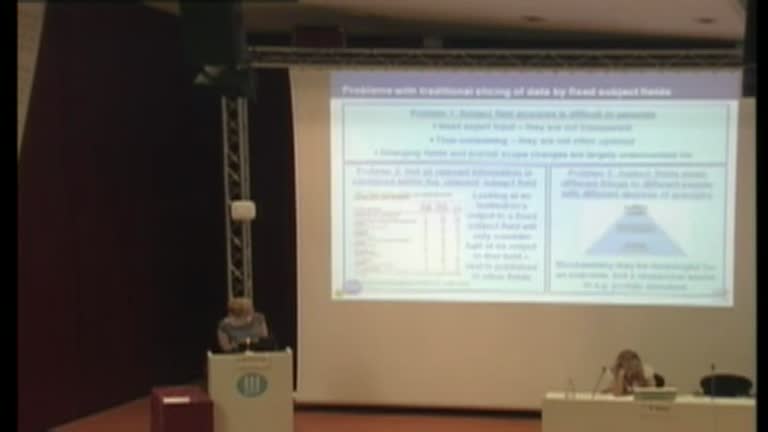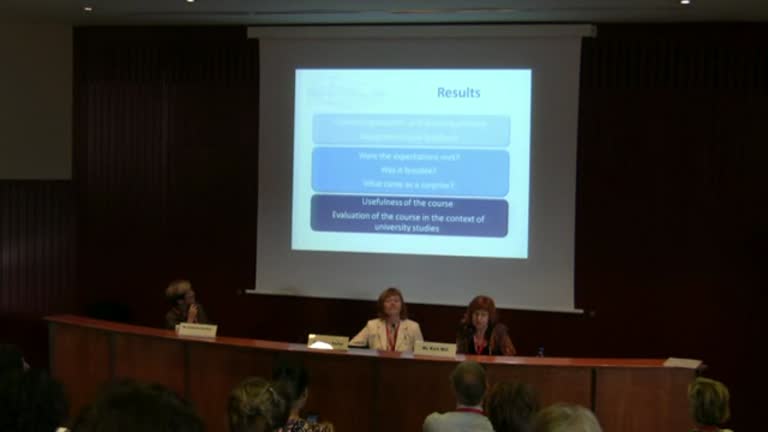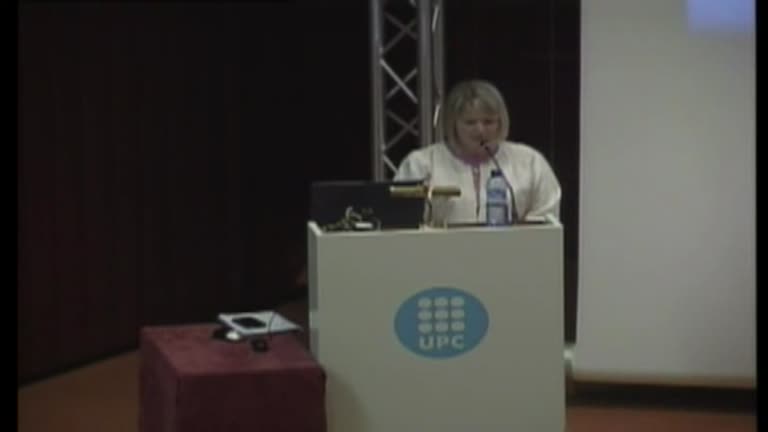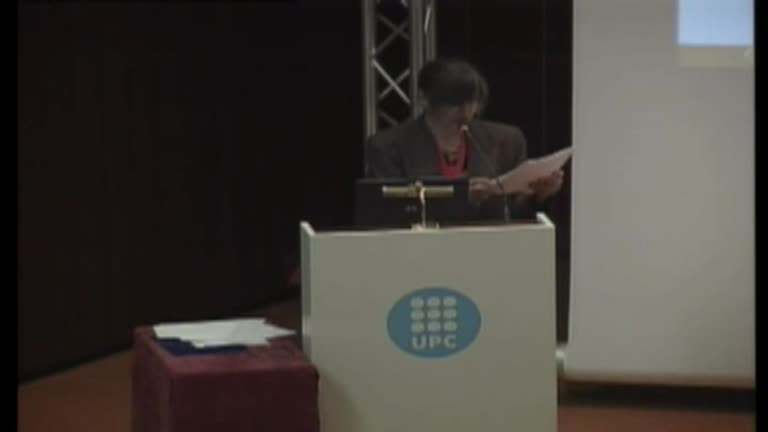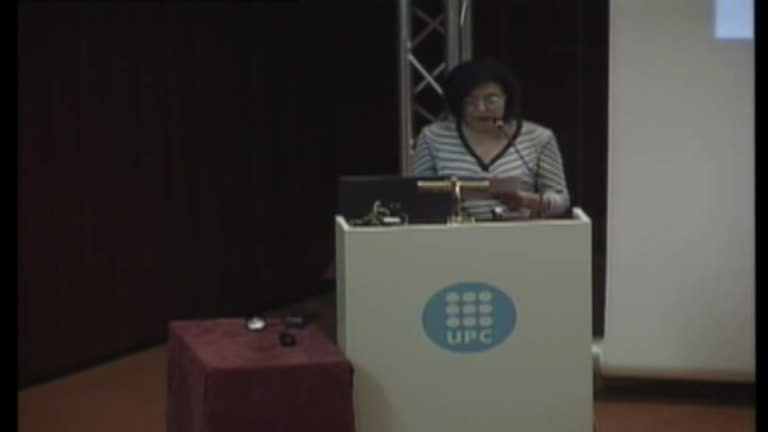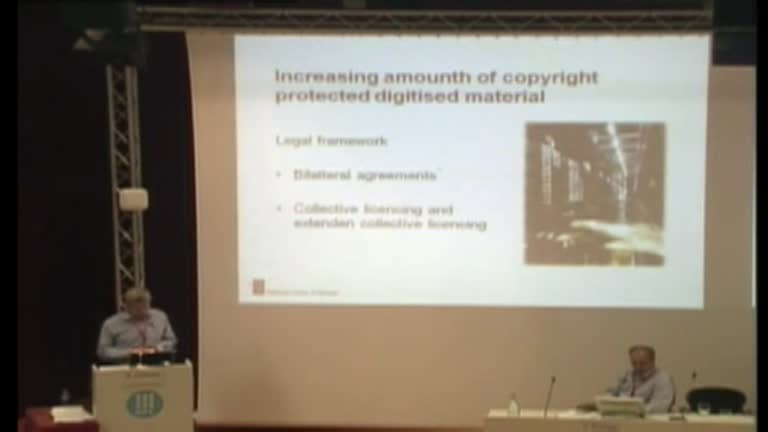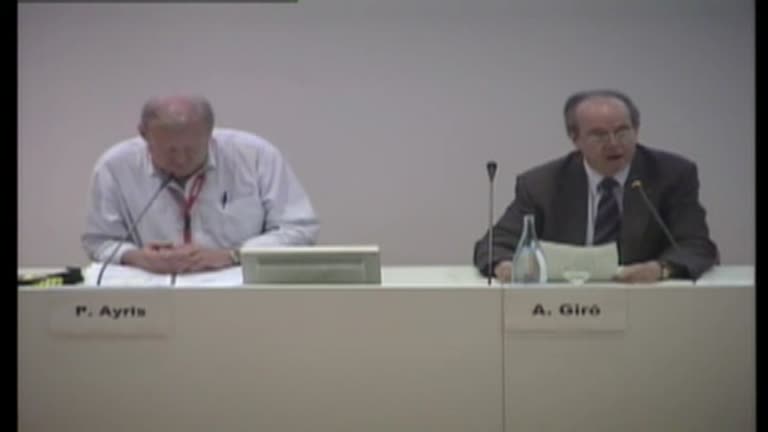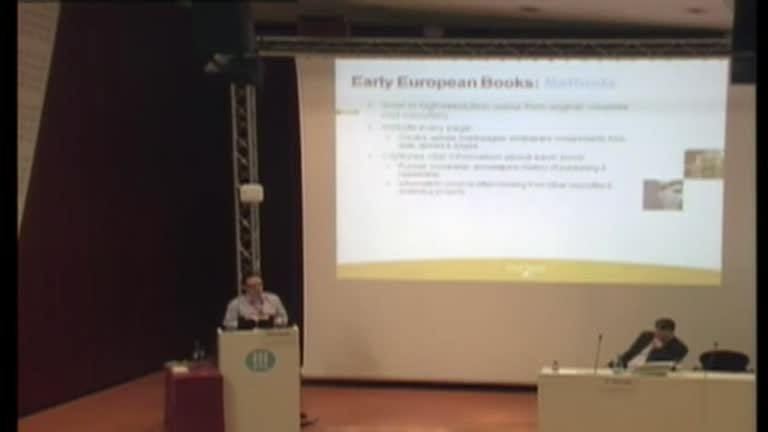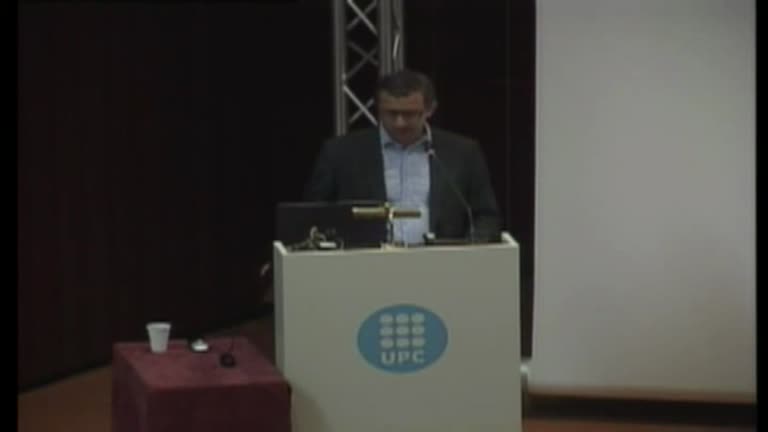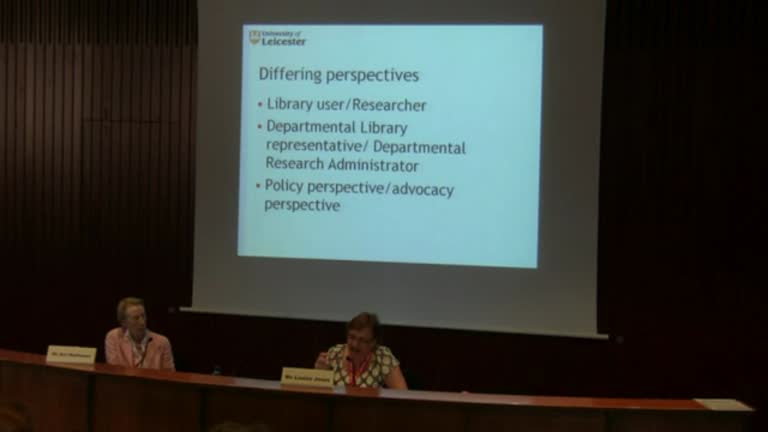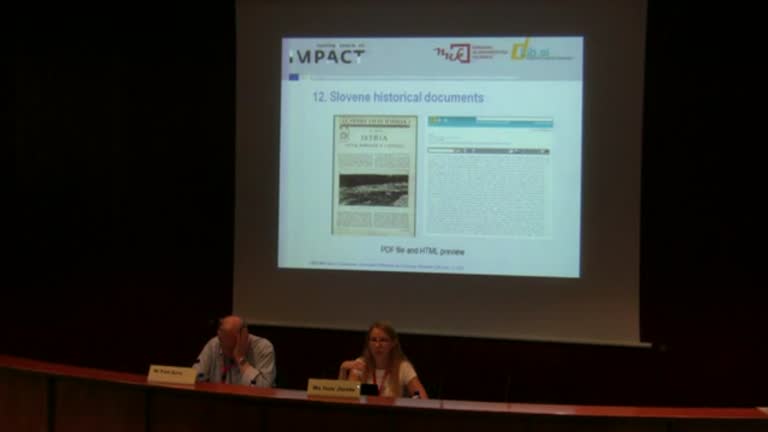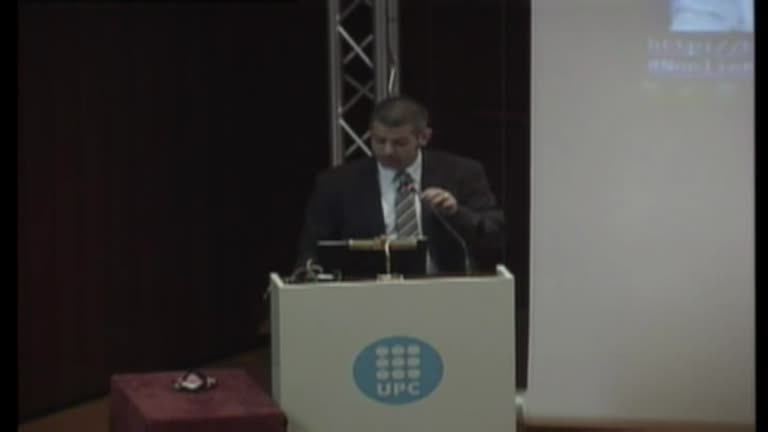Sèrie: LIBER Annual Conference 2011
30 de juny 2011
How to assess the influence of research - translating user feedback into tools
Accés obert
30 de juny 2011
How influential is scholarly communication? This is a question increasingly asked of librarians in the face of higher expectations around the availability and rapid provision of relevant data. These questions have traditionally been addressed by document output counts and the Impact Factors of journals that have been published in; while this is certainly useful to a degree, concern has been expressed about basing decisions on such limited metrics that apply to varying degrees to distinct fields and career stages.
How to teach information literacy relevant to students: an online credit course model from the University of Tartu Library
Accés obert
30 de juny 2011
To communicate the necessity of information literacy in the university and to draw attention to it as a possible subject, we created in 2006 a web-based general course model of information literacy. The course is based on the ALA standards and is now included in the university curriculum as a credit bearing optional elective course, giving 3 ECTS credit points. We relied on experiences described in professional literature: information literacy can be effectively taught in separate courses, and such courses should be offered by libraries as well. On the basis of the course, we have also created an advanced course for doctoral students, several specialized courses in information literacy integrated into subjects, and a nationwide course for gymnasium students.
29 de juny 2011
Increasing access to special collections
Accés obert
29 de juny 2011
This presentation extracts the essence of many related efforts to help libraries, archives, and museums increase access to their special collections. The Shifting Gears essay (which was presented to the LIBER conference in 2008) will be used as the launching point. Shifting Gears argued for scaling up the digitization of special collections by thinking in terms of access, instead of preservation (when we are preserving the originals).
30 de juny 2011
Managing research information for researchers and universities
Accés obert
30 de juny 2011
Recent research on scholarly behavior converges on conclusions about ecologies of information-related services in universities and across academic disciplines. In the past few years, numerous credible studies - conducted in Europe and North America - have offered evidence about information needs of a variety of researchers and their universities. While we have witnessed simultaneous evolution of discipline-based hubs and institution-based repositories, diverse international reports have identified gaps in digital infrastructure and library provision of services to manage research information.
29 de juny 2011
Mass-digitization at the Complutense University Library. Access and preservation of its bibliographic heritage
Accés obert
29 de juny 2011
IIn the mid-1990’s, the Complutense Library applied the growing body of new technologies to launch, in partnership with the Foundation for the Health Sciences and GlaxoSmithKline Laboratories, a pioneering project: the digitization of a biomedicine valuable collection. The project resulted in the Dioscórides Digital Library. Nevertheless, by 2006, results were rather limited and the digitization rate was very slow. Currently, Dioscórides Digital Library offers free access to 3,000 books from the 14th to the 18th centuries and approximately 50,000 engravings.
In September 2006 the Complutense University of Madrid and Google signed a partnership agreement intended to large-scale digitization of our collections in the public domain.
In September 2006 the Complutense University of Madrid and Google signed a partnership agreement intended to large-scale digitization of our collections in the public domain.
30 de juny 2011
New business models and legal framework for dissemination of digital content
Accés obert
30 de juny 2011
The Norwegian National Library made a decision in 2005 to digitize all of it´s collection. Being a multimedia legal deposit institution the decision implies digitizing printed material, manuscripts, music, film, photos, radio broadcasts and television. A long term schedule for the total operation was presented to the owner, The Ministry of Culture in 2006.
29 de juny 2011
1 de jul. 2011
ProQuest’s Early European books
Accés obert
1 de jul. 2011
We will provide a progress report on ProQuest’s ambitious Early European Books project, which aims to build a comprehensive library of European printed books from the first examples in the 1450s through to the year 1700. In doing so, the project represents an innovative model for opening up access to the printed heritage stored in Europe’s rare book libraries. The presentation will provide an outline of ProQuest’s publishing model, digitisation practices and specialist interface, and will also show some samples of the books we have already digitised at the Kongelige Bibliotek, Copenhagen, the Biblioteca Nazionale Centrale di Firenze and the Koninklijke Bibliotheek in The Hague. In addition, we will talk about the economic and intellectual challenges of creating cataloguing and other metadata to accompany the digital files.
29 de juny 2011
Putting 600,000 books online: the large-scale digitisation partnership between the Austrian National Library and Google
Accés obert
29 de juny 2011
In a Public Private Partnership with Google the Austrian National Library will be digitizing its entire historical book holdings from the early 16th to the late 19th century. Within the next 6 years 600.000 public domain books of the library’s world famous historical book collection will gradually be made available online free of charge and without restrictions.
The announcement of the project "Austrian Books Online" in June 2010 triggered a broad public discussion regarding private co-financing of large-scale digitisation. A report recently published by the EC’s "Comité des Sages" emphasises the importance of public private partnerships in reaching the aim of bringing a critical mass of Europe’s cultural heritage online and mentions the Austrian National Library’s project.
In this partnership, Google is financing digitisation, full-text creation and book transportation while the Austrian National Library is bearing the costs for metadata creation, internal logistics, storage of the library’s digital copies and online accessibility. The library will receive a copy of each digitised book. Users will be able to access the digitised books via Google Book Search and via the library’s Digital Library. They will also be able to find the books in a normal Google search as well as in Europe’s cultural heritage portal Europeana.
The announcement of the project "Austrian Books Online" in June 2010 triggered a broad public discussion regarding private co-financing of large-scale digitisation. A report recently published by the EC’s "Comité des Sages" emphasises the importance of public private partnerships in reaching the aim of bringing a critical mass of Europe’s cultural heritage online and mentions the Austrian National Library’s project.
In this partnership, Google is financing digitisation, full-text creation and book transportation while the Austrian National Library is bearing the costs for metadata creation, internal logistics, storage of the library’s digital copies and online accessibility. The library will receive a copy of each digitised book. Users will be able to access the digitised books via Google Book Search and via the library’s Digital Library. They will also be able to find the books in a normal Google search as well as in Europe’s cultural heritage portal Europeana.
30 de maig 2011
Research support services: the rationale for a new partnership and roles at the University of Leicester Library
Accés obert
30 de maig 2011
This paper examines the developing partnership between the University of Leicester Library and the Research Support Office (RSO). It discusses the drivers and barriers to partnership, and the outcomes including the creation of a new role of Bibliometrician. We have discovered that joint work on promotion of open access, integrated research management systems and bibliometrics enhances research support and strengthens the Library and its visibility to researchers.
1 de jul. 2011
Role of National and University Library of Slovenia in a multinational research project (IMPACT): a case study
Accés obert
1 de jul. 2011
In this paper, the participation and the role of individual libraries as partners in a consortium research project on digitization issues are analyzed, following the example of the National and University Library of Slovenia (NUK) as a partner in the ongoing project IMPACT - Improving Access to Text. IMPACT is funded under the Seventh Framework Programme of the European Commission (FP7) aimed at improving automated text recognition of digitized materials from different European digital collections. For achieving the project’s objectives, a consortium of partners from different European libraries, information technology and software engineering centres and linguistic institutes was established. The consortium’s work is based on interdisciplinary collaboration in which libraries (like NUK) play an important role as demonstrators of tools developed within the project, and representatives of end-users needs and demands as well.
29 de juny 2010
Science and culture in the EU’s Digital Agenda
Accés obert
29 de juny 2010
The Digital Agenda for Europe is the European Union's blueprint for realising the benefits of the digital revolution - in all areas of society, the economy and technology. Scientific and cultural content have long been in the center of this revolution; indeed, the world wide web was conceived as a way to make dissemination of, and access to, scientific information easier. The talk will start with an overview of the Digital Agenda and situate it in overall EU politics. Then three specific areas will be addressed in more detail: the Digital Agenda policies on the dissemination of scientific information (including open access policies), on open public data and on efforts to put European culture online which concerns technical, financial and legal questions.
- ← Anterior
- 1
- 2 (current)
- 3
- Següent →


